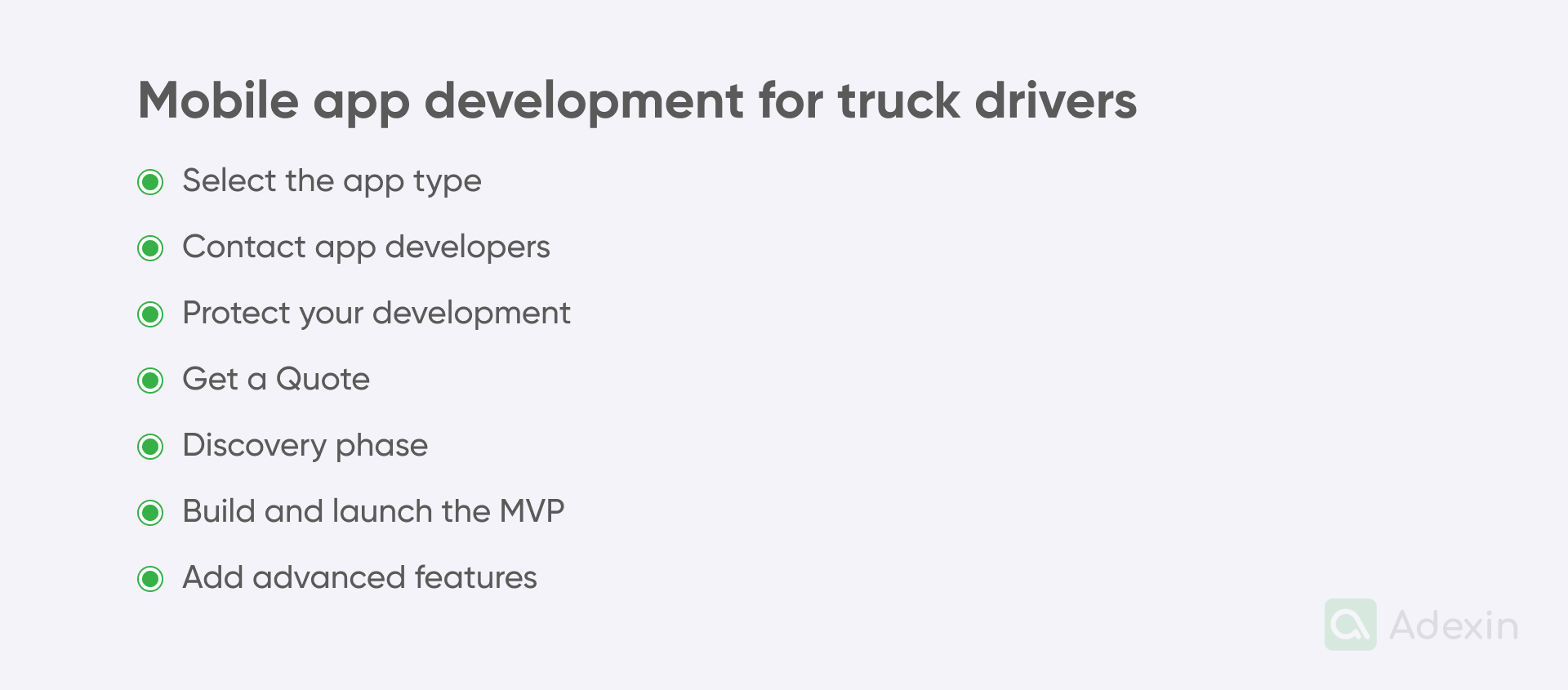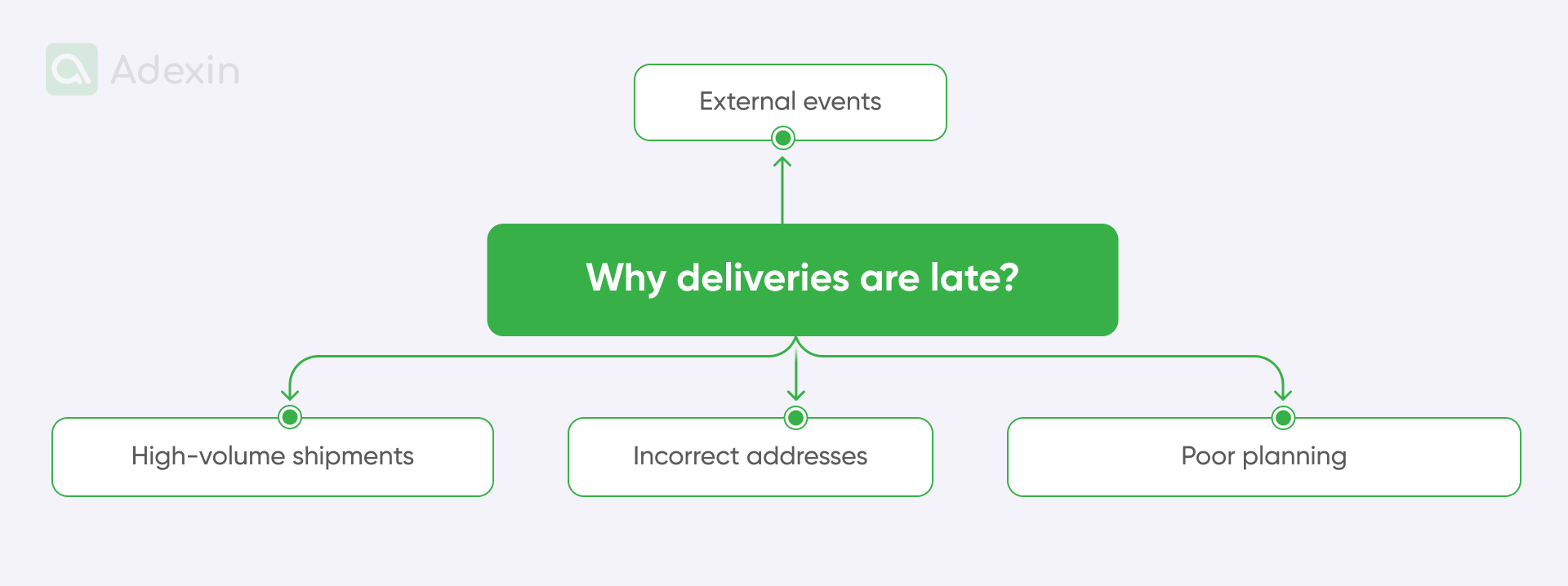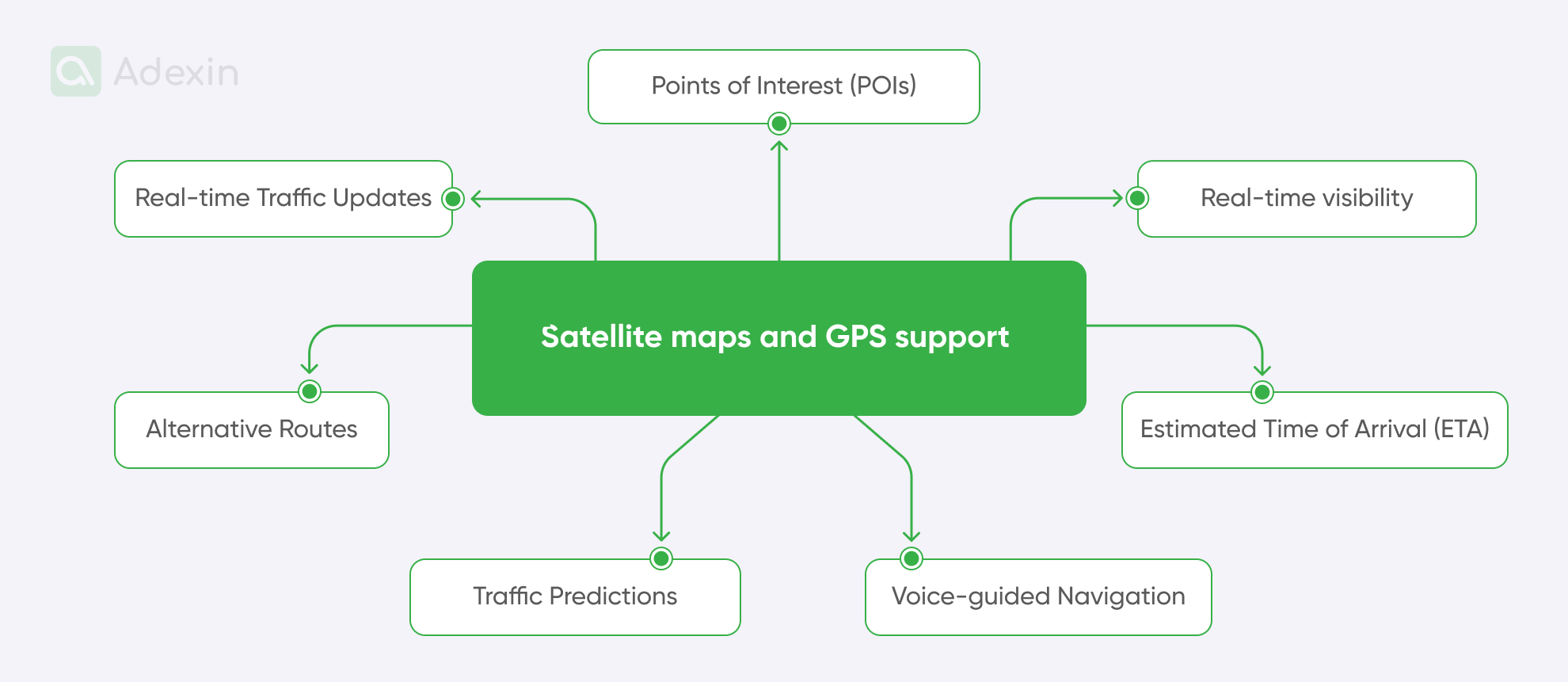Summary
The digital transformation of your logistics and transportation business within the supply chain will constantly require you to put more focus on mobile apps. This approach has become so popular that we can't even imagine what it would be like if we couldn't have mobile access to the company email inbox from our mobile. The same has happened with keeping control over other areas in our lives. When it comes to business, this control becomes even more important. Therefore, mobile applications for people like truck drivers can help keep an eye on your business wherever you and your people are. We have prepared a short introduction on why to start with mobile development for your business and truck drivers. Let's see together what and why it is important for us.
Why develop a truck driver app?
Companies operating in logistics, transportation, and supply chain heavily rely on seamless cooperation between various stakeholders in the business. Well-established communication channels are always in high demand. As everything is moving towards complex automation, companies are striving to minimize the presence of middlemen in all processes.
The best solution for this approach is to empower people with access to mobile devices, allowing them to communicate effortlessly across the entire business network. In logistics, transportation, and supply chain, this means deploying a mobile application for people in warehouses, distribution centers, and transportation.
The last area refers to truck drivers responsible for delivering goods between various locations. They can travel between international ports and distribution centers or deliver to customers within the last-mile delivery process. In each of these transport scenarios, a driver with a mobile application can significantly increase your business efficiency.
We have outlined several strong reasons, based on real-life examples, for developing a mobile app for transportation. We took as an example truck drivers. These reasons will explain why your business should invest in developing custom applications rather than purchasing ready-made apps from the Google Store or Apple Store. We'll elaborate on this shortly.
Here, you can find the reasons for developing a truck driver app:
Efficient control and tracking system
Using the GPS built-in function in the app, you can track and trace the locations of shipments from a mobile device carried by your driver. You can see his exact position and determine the estimated delivery time (ETA). Data from the mobile app can be exchanged in real-time with you and your customer.
Consider a situation where your customer expects the delivery of a very important consignment. Often, your stakeholders might depend on timely deliveries for their operations. A good example can be provided by manufacturing companies that need to schedule deliveries on time due to the just-in-sequence delivery model.
Easy shipment booking
Using a mobile app, you can exchange data with your truck driver immediately. That means when your mobile app is integrated with TMS, WMS, or any other system, you can directly schedule shipping, accept or decline orders, and register various information that replaces the email system. All that is to keep your driver informed about pickup time and the dock number for loading and many other things. You can even better manage loading space on a trailer.
Let's give an example from the retail sector this time. You have been contracted on the last-mile delivery process as the company may not have enough drivers and trucks. You may be obligated to follow a very strict delivery schedule, so your truck drivers need to have a very clear overview of the shipping schedule. Even if it's just a matter of several kilometers, when it comes to transporting 5,000 packages in a single route to the collection point, its significance is much higher.
Admin panel
A mobile app for truck drivers can serve as an extension of your entire control panel. This means the mobile app can connect with an exceptionally developed admin panel for administrators in the control tower, who can schedule your entire shipping mode with TMS capabilities.
For a real-life case example, let's take a closer look at a freight forwarding company that doesn't have to invest in a Transport Management System (TMS). They will only require certain functions for traceability and integration with customer APIs. So, they can use a control panel for mobile applications that help them track and trace their drivers and shipments. Carriers can save a lot of money in this way.
Route optimization
A mobile app helps keep truck drivers constantly informed about the road situation. Drivers can get updates on traffic or construction developments that cause delivery delays. This allows you to schedule more suitable routes, saving fuel as well as reducing CO2 emissions.
While on the road, many unexpected events can occur, such as accidents. Your truck driver can be prompted via proper channels about disruptions on the road before getting stuck in a traffic jam. This is especially valuable on highways, as your driver can be informed about the situation in advance to avoid delays.
Mobile solutions are also an ongoing trend that pushes countries to establish national policies. Everything points to the fact that mobility in logistics and transportation is our inevitable future, so for many transportation companies, early adoption of mobile applications for truck drivers can be highly beneficial. It just means that in the near future, many companies may be required by the law to switch to mobility to cut costs and protect the environment.[1]
How do you create a logistic app?
To create a mobile app for truck drivers that will support your logistics, transportation, and supply chain operations, you want to get involved in cooperation with experts who have inside-out knowledge about your industry. Therefore, you may consider app development by using custom software development services.
Here are the main steps in mobile app development for truck drivers:
Select the app type
Determine the type of truck driver application that suits your business needs. Consider all that your driver may need, along with shipping conditions.
Contact app developers
Evaluate custom software development companies specializing in the transportation, logistics, and supply chain industries.
Protect your development
Sign a non-disclosure agreement (NDA) with the developers and share your concept if necessary.
Get a Quote
Obtain a cost estimate for your app development. This may vary but is definitely worth much more than a commercial off-the-shelf (COTS) solution.
Discovery phase
Define the scope of your app and create a project plan. Here, you can involve your developers in each stage up to the Go-Live level.
Build and launch the MVP
Develop a minimum viable product (MVP) and release it to the market. Take care of your business and caution, as the app may require modification, so don't release it on a big scale. Try small and grow big.
Add advanced features
Extend the logistics application with advanced features based on feedback and market trends. After the MVP, you'll definitely know better what suits you best. You can remove or add additional functions to your truck driver app.
One of the biggest advantages of custom app development is that all data stays with you. You don't have to worry about data leaks that could impact your customer satisfaction. There is very little vulnerability to external factors. You're also the owner of the source codes, and you have more flexibility for integrating your app with additional systems. This is one of the many solutions for transport management, from which your company can gain competitive advantage.

Lower delivery costs with truck navigation app
Truck driver apps enable your drivers with features like GPS navigation. Most of the benefits of using such a feature are related to cost savings. Here, we'll indicate where you can save money by using a trucker app with navigation functionality:
You can easily calculate vehicle speed and reduce fuel costs.
Using the navigation feature, you can determine the direction of travel and optimize truck routes.
You have the ability to monitor truck drivers in real time and predict potential delays.
You can evaluate the fuel efficiency and carbon emissions of trucks.
You'll be able to closely monitor driver behavior and promote eco-driving and driver safety.
Tracking via navigation will help you generate performance reports and conduct operational audits.
Following truck-appropriate routes can help you avoid costly fines and accidents.
You can minimize wear and tear on parts, reduce the consumption of fleet resources, and more.
Built-in voice navigation in the app can help your drivers easily navigate routes.
In the end, you can ensure compliance with local regulations by notifying your drivers in real time about precautions on the road.
Cost-effective route planning based on truck route app
Another great function available from a mobile app for truck drivers is route planning. This part of transport is managed by transport coordinators when it comes to entire fleet management. Later, this data can be released to the mobile app. In the case of small businesses, route planning functionality in the mobile app enables planning for a single route or delivery sequence.
Route planning again brings significant cost savings. Here are the areas where the truck driver app is most cost-effective with route planning:
Scheduling delivery time windows.
Planning driver's availability.
Decreasing inbound and outbound delays (especially when the shipment isn't ready to be loaded).
Avoiding traffic congestion and traffic accidents.
Replanning turns on the highways and intersections along possible routes.
Map all available technician locations and vehicle service locations.
No costly delays with maps for trucks
Truck drivers can benefit from trucking apps primarily due to their essential function, which is access to satellite maps. Thanks to this, truck drivers can truly benefit from uninterrupted routes. Some companies, in an effort to minimize expenses for supporting software, prefer to implement only truck navigation software. This software can provide truck drivers with maps and real-time insights into their positions but still requires integration with systems such as fleet management or route planning software.
Nevertheless, this feature is an absolute necessity in most apps dedicated to logistics, transportation, and the supply chain. Drivers are required to use maps daily to ensure timely deliveries. It is also well-known that costly delays primarily occur due to road situations and ineffective planning. In both cases, satellite maps and GPS are indispensable tools.
We have outlined several main reasons why deliveries are late:
External events - International road conditions or border-crossing issues.
High-volume shipments - Shortages in trailers and truck drivers may not allow shipping the required quantities at once.
Incorrect addresses - Consignees may provide invalid addresses, leading to the need for redelivery.
Poor planning - Lack of access to satellite maps can hinder sufficient planning and forecasting.

Here's how satellite maps and GPS help avoid these delays:
Real-time Traffic Updates
Alternative Routes
Estimated Time of Arrival (ETA)
Voice-guided Navigation
Traffic Predictions
Points of Interest (POIs)
Offline Maps

Final takeaway
Logistics, transportation, and the entire supply chain landscape can truly benefit from mobile applications in the hands of truck drivers. A seemingly small tool can have a significant impact on avoiding truck delays and many other negative impacts.
The transformation to mobility requires an approach in a so-called two-way process where companies can choose the best possible solution to help them run their business smoothly. Very often, participation in this process involves a high level of involvement by the software development company, which supports the custom development of the most suitable mobile solution for truck drivers.
Adexin is one of those companies that, through its outstanding customer-centric approach, learns how to develop the most suitable transportation solutions and mobile apps. We understand what is most important for your business, and listening to your needs plays a crucial role in the development process. Get in touch and learn more about our expertise in the transportation industry.
References:
[1] Logistics and mobility policies for sustainable development and regional integration. Retrieved from: https://repositorio.cepal.org/server/api/core/bitstreams/38703e57-2fb9-4999-ae0c-fec0af229b0c/content
